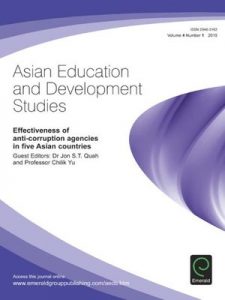 Wright, E. and Horta, H. (2018). Higher education participation in “high-income” universal higher education systems: “Survivalism” in the risk society. Asian Education and Development Studies, 7(2): 184-204.
Wright, E. and Horta, H. (2018). Higher education participation in “high-income” universal higher education systems: “Survivalism” in the risk society. Asian Education and Development Studies, 7(2): 184-204.
Purpose – Global participation in higher education has expanded greatly since the late 20th century. The implications for the cultural, social, and economic fabric of societies have been substantial. To explain transitions from elite to mass higher education systems, theoretical insights from Technical-functionalism, Neo-institutionalism, World Academic System, and Credentialism perspectives have been put forward. It is the contention of this article that there are emerging and complementary factors driving steadily growing participation in “high income” universal higher education systems.
Design/methodology/approach – With reference to Ulrich Beck’s concept of the “risk society”, it is discussed how higher education participation is increasingly a response by young people (and their families) seeking to mitigate heightened instability in work and employment under a “risk regime”. Publicly available data from national and supra-national organisations is used to evidence trends and support the arguments put forward by this article.
Findings – Participation is perceived as quasi-compulsory to “survive” amid concern that those without higher education attainment are being “left behind” in modern labour markets. This environment has contributed to more students from more diverse backgrounds viewing higher education as the only viable option to secure of livelihood regardless of rising private costs of participation and rising uncertainty over graduate employment outcomes. The expansion of higher education has therefore potentially developed a self-perpetuating dynamic as the perceived cost of non-participation escalates.
Originality/value – It is shown that to better understand higher education participation in “high income” countries with universal higher education systems, one needs to consider the conceptual idea of “Survivalism”, that underlines risk and the vulnerabilities of modern societies.
